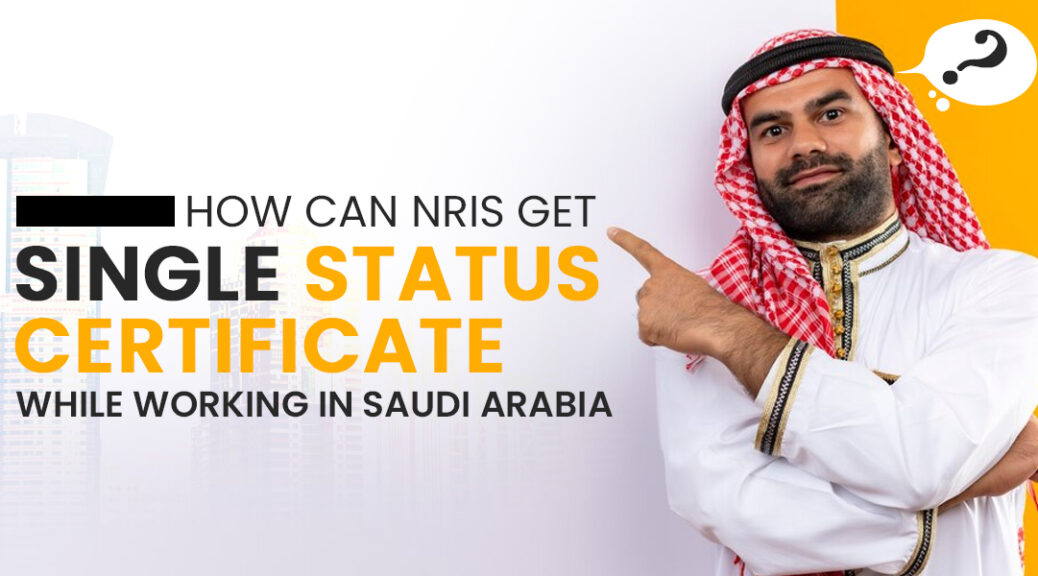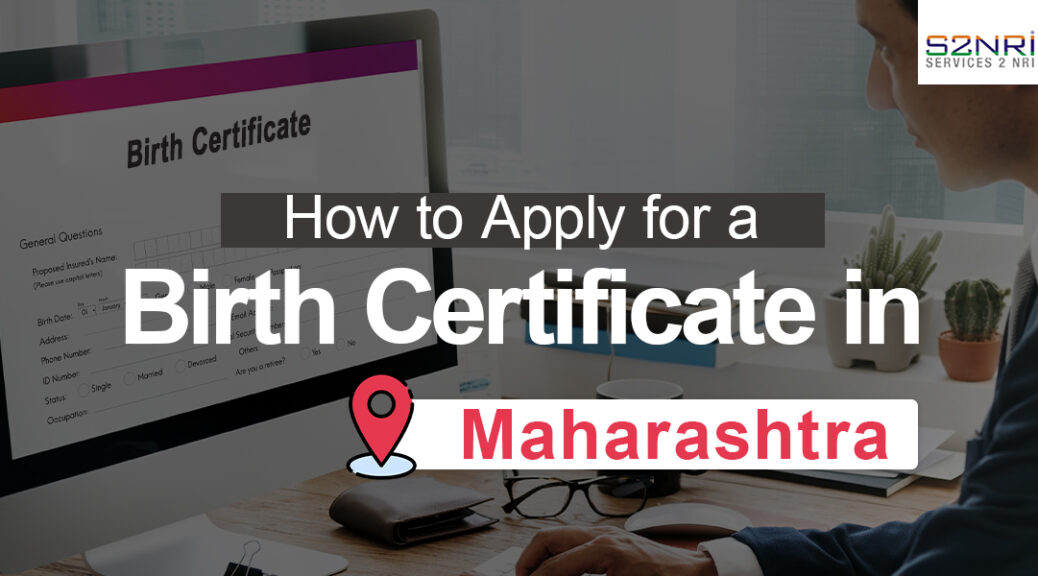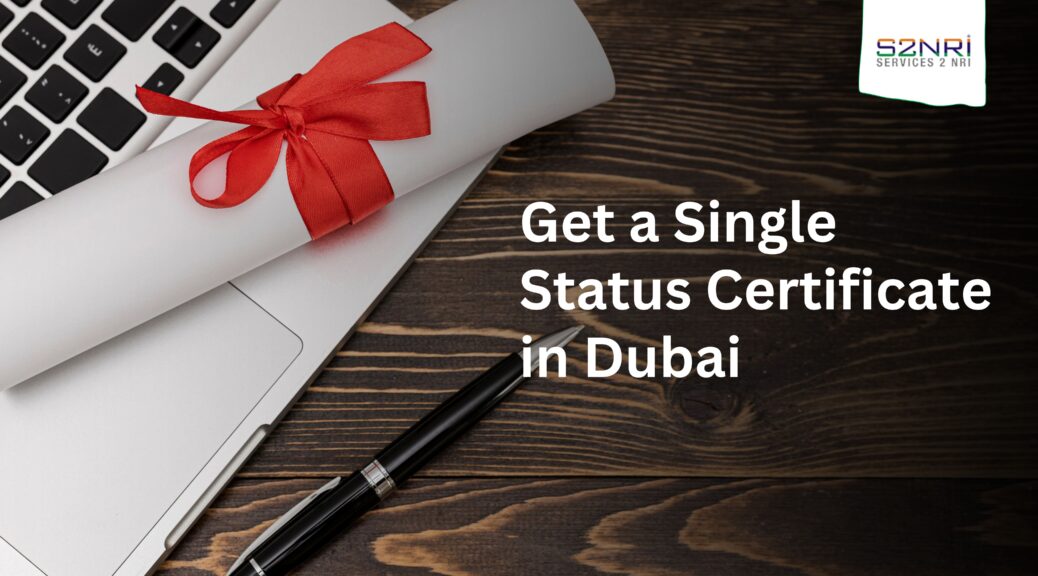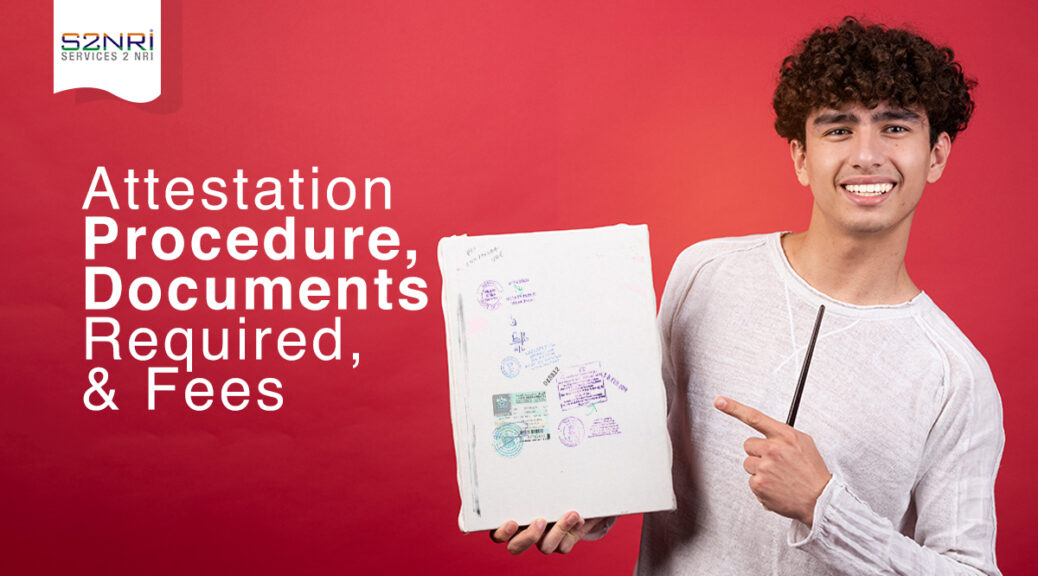
How Can NRIs Get Single Status Certificate While Working in Saudi Arabia?
Also known as a no marriage certificate or certificate of no impediment, a single status certificate can be obtained easily, even if you’re in Saudi Arabia and working as a non-resident Indian (NRI). This document is a legal paper required for different purposes, especially navigating the challenges in marriage abroad or its registration.
Here is how you can apply and acquire a single status certificate.
Process to Obtain a Single Status Certificate in Saudi Arabia
Let’s find out the simple way to acquire a no marriage certificate in a gulf country.
Step 1. Contact the Indian Embassy/Consulate
The process starts with reaching out to the Indian embassy or consulate located in Saudi Arabia. You can inquire about the whole procedure, contextual requirement, and documents to obtain a single status certificate. So, the purpose is to collect information, but not to apply. It can be done online.
Step 2. Confirm Eligibility
Beforehand, you should discover if you’re eligible to apply for this document. Typically, the eligibility criteria mentions your age, which should be above 21 years, to get it.
Step 3. Document Preparation
This step is dedicated to gathering necessary documents. These can be the following:
- Passport: The applicant should have a copy of his/her valid passport, including particular pages consisting of personal information and the residence permit in Saudi Arabia.
- Proof of Stay: It is an evidence of one’s residence in Saudi Arabia for which he or she can show a copy of his/her residence permit (Iqama).
- Affidavit: It refers to a sworn document, stating that its bearer is single or bachelor. A single status affidavit must be attested or legalised by the Indian embassy to be accepted.
- Visa photocopies
- 2 photographs
- An Authorization Letter
Step 4. Visit the Indian Embassy/Consulate
Now comes the step when you have to schedule an appointment with the embassy or consulate. Visit its official website to contact the authority and understand how to move further and obtain a bachelorhood certificate. Thoroughly check and discover their working hours. Then, select a slot to visit for an appointment.
Step 5. Affidavit Attestation
If the authority seeks affidavit, you have to get it from the notary public in your own country and get it attested from the Ministry of External Affairs (MEA) of Saudi Arabia. This step makes this document acceptable because the legalized document becomes authentic that every country trusts.
Step 6. Translation of Documents
The translation of any of your document in Arabic would require its English version. So, you should ensure that these translations are also signed by a competent authority.
Step 7. Visit the Ministry of Foreign Affairs
Now that you have all documents ready, get them legalized by the MOFA in the host country. The website- https://mea.gov.in/apostille.htm is an official website to host documents’ attestation services. You, also, have to visit there and go through the interview with consul before.
Step 8. Submission of Documents
During that interview, you are supposed to submit all aforementioned documents. The checklist carries the attested single status affidavit, passport, and proof of stay and translation of all docs (that are in the regional language).
Step 9. Verification Process
The consul will examine the authenticity and originality of the supporting documents during verification. This can happen in your very presence before the relevant authority.
Step 10. Payment of Fees
Because the attestation is to be done, the authority can seek fees for its issuance. This fee can be revised over years. So, it cannot be mentioned here specifically. But, you can go through the official website of the consulting agents because the MEA does not entertain request from anyone, unless it is an authorized consultant.
Step 11. Waiting Period
The processing time for this bachelorhood proof can vary. Your documents can be attested and verified one the very same day or in 2-3 days. If the expected time exceeds, you can inquire by visiting its office.
Step 12. Certificate Issuance
If everything appears accurate, and the documents are valid, the embassy will issue the certificate of single status.
Step 13. Attestation by MOFA India
After obtaining, it should be legalized by the Ministry of External Affairs (MEA) in India. This step ensures that your certificate is valid and can be used internationally.
Step 14. Optional: Attestation by the Embassy of the Receiving Country
Depending on the destination country’s requirements, you may also need to get the Single Status Certificate attested by the Embassy or Consulate of the country where you intend to use the document.
Step 15. Delivery or Collection
Finally, the procedure ends with the delivery of the document, which is outlined by the Embassy/Consulate.
Additional Tips
If you consider seeking assistance, hire professional consultants that specialize in document attestation services.
In the Nutshell
It’s necessary to understand that the procedure and requirements can be different as per location. So, you should always check with the relevant authorities and the official website of the Indian embassy/ consulate in Saudi Arabia for the most accurate and updated information.





 this is link
this is link